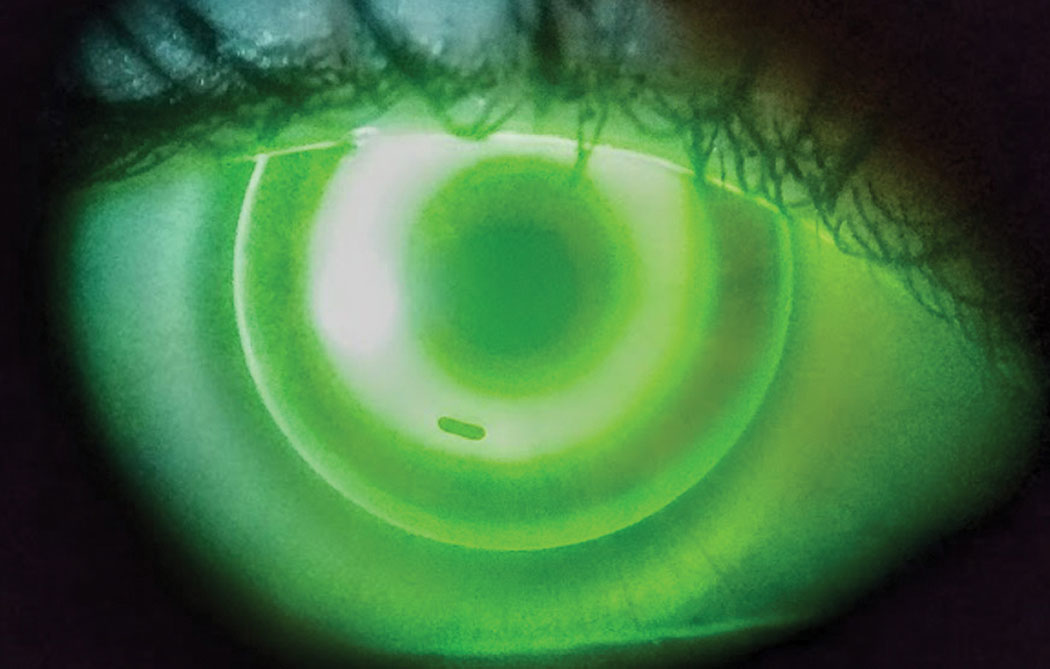 |
| Many ortho-K lens wearers struggle with poor compliance, sometimes leading to lens discontinuation. Photo: Dan Fuller, OD. Click image to enlarge. |
Clinicians have reported incidences of discontinuation with ortho-K lenses, despite their effectiveness in controlling myopia progression among adolescents. Researchers recently investigated the reasons behind discontinuation and reported several, including shorter sleep time among older children.
The retrospective study included data of 2,499 children aged eight to 18 with ametropic spherical power lenses ranging from -6D to -0.75D and cylinder greater than -1.5D. The patients wore their lenses for an average of two years.
A total of 50 patients discontinued ortho-K wear for the following reasons: various reasons (50%), short sleep time (18%), economic difficulties (16%), poor effect after use (10%) and corneal infiltrates (6%). The researchers noted that 30% of the study population underwent surgical correction in adulthood.
Some patients noticed they still had clear vision during the day even if they didn’t wear the lenses every night and gradually stopped wearing them. They resumed once the sustained effect wore off but then reported discomfort and were later unwilling to wear them. “The results of this study also indicate that the number of patients discontinuing lens use decreases significantly with the extension of use time,” the researchers wrote in their paper. “Therefore, it’s necessary to explain to patients and guardians that adhering to use is important to ensure a corrective effect and myopia control effect.”
The patients who had corneal infiltrates were found to have been wearing their lenses for too long (more than 10 hours per night). Patients are advised to stop wear immediately following pain or redness, but the researchers noted that these patients continued to use the lenses despite discomfort.
The researchers concluded that while ortho-K lenses are effective when worn properly, poor compliance, schoolwork pressure and shorter sleep time due to schoolwork result in insufficient lens wear time that reduces their effectiveness and protective ability. The authors noted that it’s important for clinicians to counsel patients and caregivers about the importance of ortho-K adherence. They added, “More enterprises should be encouraged to contribute to the development of [ortho-K] lenses to reduce costs, reduce the economic burden on myopia patients and promote collaborative participation in myopia prevention and control.”
Ma L, Xu M, Wang J, et al. Analysis of the reasons for the discontinuation of orthokeratology lens use: a 4-year retrospective study. Eye Contact Lens. June 3, 2022. [Epub ahead of print]. |

